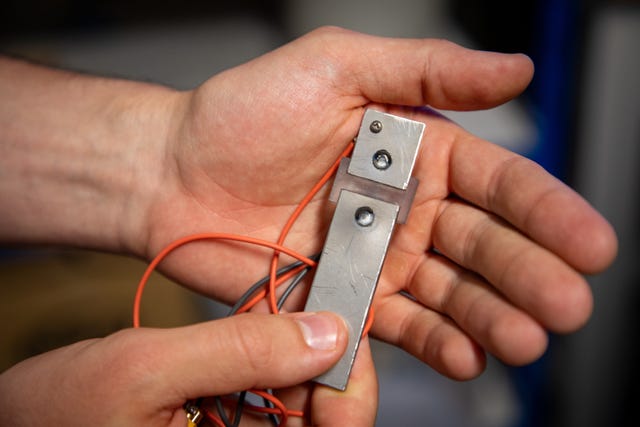New rocket thruster could mean humans boldly go on never-ending space trips
The breakthrough could mean deep space exploration is no longer the stuff of sci-fi, according to University of Southampton engineers.

Scientists are working on a new rocket thruster which could open up “never-ending” deep space exploration by using any type of metal as fuel.
The team at the University of Southampton say that metals found on comets and moons could be mined to enable the thruster to propel spacecraft to “regions of the universe previously thought unreachable”.
A university spokesman said: “Deep space exploration might no longer be confined to sci-fi after scientists began testing a rocket thruster which promises to boldly go further than ever before.
“Astro engineers from the University of Southampton are trialling a new propulsion system which can power spaceships through the stars using any type of metal as fuel.
“They say this means craft fitted with the technology could fly indefinitely by refilling its tanks using minerals harvested from asteroids or far-off moons.”

Lead scientist Dr Minkwan Kim explained: “Spacecraft have limited amounts of fuel because of the enormous cost and energy it takes to launch them into space.
“But these new thrusters are capable of being powered by any metal that can burn, such as iron, aluminium or copper.
“Once fitted, spacecraft could land on a comet or moon, rich in these minerals, and harvest what it needs before jetting off with a full tank.
“It could open up vast new frontiers and accelerate our understanding of the universe.”

Dr Kim, who created a plasma thruster design for the SpaceX Falcon 9 rocket launched last year, said that currently spacecraft, once they have left the Earth’s atmosphere, are mostly propelled by rare gas phase fuels such as xenon or krypton, which also power the Starlink satellites.
He added: “The system could help us explore new planets, seek out new life, and go where no human has gone before – enabling never-ending discovery.”
The Southampton team are working with British-based space firm Magdrive on the propulsion system, named Super Magdrive, which has been given a £1 million by the UK Government.





